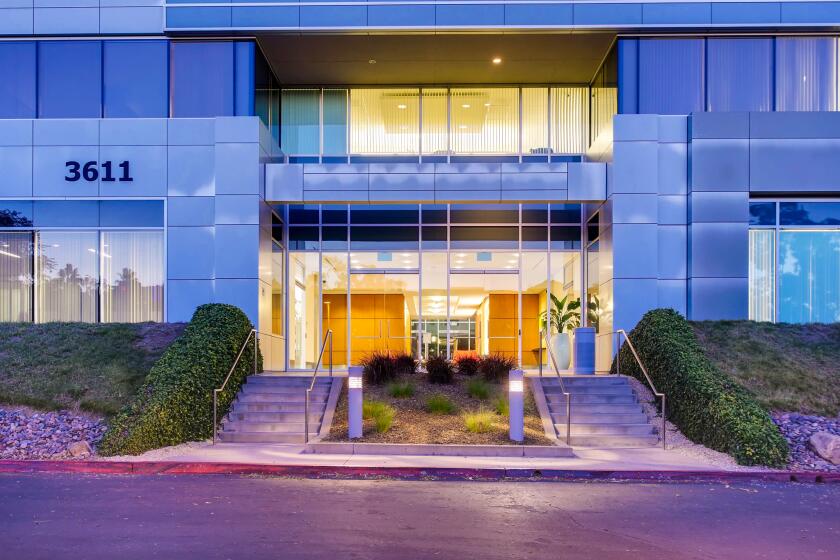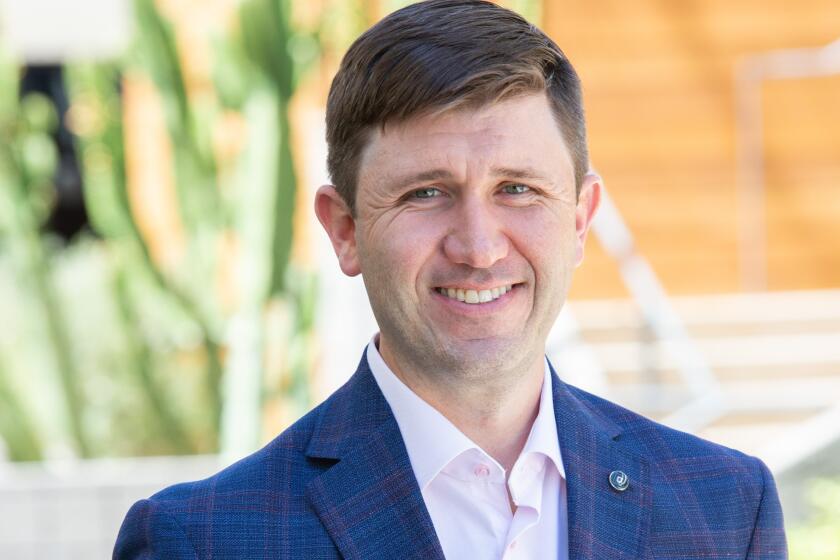LPL Financial chief: Stay on course amid volatility
For LPL Financial Chief Executive Mark Casady, one key to success is not losing sight of your game plan in the midst of distractions.
It’s advice that can be applied to investing or to running a business. Over the past couple of years, there have been more than a few distractions for LPL Financial, the largest organization of independent financial advisers in the country.
They range from turnover in senior management after an initial public stock offering, the integration of about a dozen acquisitions, increased regulation and a few costly compliance missteps.
Through it all, Casady believes LPL Financial stuck to its plan of rebuilding its infrastructure to better support its 14,000 affiliated independent financial advisers – focusing on technology, risk management, research, trading and other services.
“We have had plenty of things that have tried to distract us over time, the noise going on around us,” said Casady in an interview this week. “I think we have been pretty consistent against the plan we set out.”
Casady, based in Boston, came to San Diego for LPL’s Focus 2016 Conference, attended by about 6,000 financial advisers and business partners at the Convention Center.
LPL Financial has a long history in San Diego. The company was originally formed when Boston brokerage firm Linsco bought San Diego’s financial adviser Private Ledger – hence the LPL name. It currently has about 1,600 local employees – roughly half its total workforce. They include several senior executives.
Casady sat down with the Union-Tribune to talk about the investment landscape and how the coming wave of tech-savvy millennials could impact the financial adviser business. Here are some excerpts.
Q: What’s the state of the investment market?
A: Generally speaking what we see is an economy that we think is strong. It isn’t growing as fast as everybody would like. But generally unemployment is getting better. More people are working and you still have a lot of household formation, particularly among millennials or younger people.
The downside is we are in year seven of a bull market, so at some point you get what is happening in 2016, which is volatility. You had it in January and February. You had it with Brexit, though it was pretty short. We would say you are likely to get some more in terms of stock market volatility.
But for long-term investors, you shouldn’t worry about that. It is best to stay invested and believe over the medium or longer term the value of your stocks are going to grow.
Q: Any asset bubbles out there?
A: I don’t see a major correction or a recession in the economy. We would say the market is probably a little ahead of itself right at the moment. Although the multiples in terms of valuations aren’t outlandish — this isn’t 1999 again — they are a bit higher than you might want as it relates to earnings growth. So you are likely to see some correction, then back at it in terms of growth.
For most investors, the trick is to save money. Nothing will get you a better outcome than saving money. Then staying invested through volatility is the second thing you should do as an investor thinking about the markets and your long-term outcomes.
Q: There’s a lot of talk about technology and automation in financial services, especially as more millennials begin investing. How do you view so-called robo advisers and other technology in the sector?
A: Millennials are more critical technology buyers. I think the reason they like robo advisers is they don’t have a lot of money. And their problems are not that hard to solve. Their main problem is they need to save.
I think demographically this is still the age of the baby boomer in our industry, and it will be for quite some time. There is still a lot of money flowing in, and boomers are likely to delay retirement, mostly because they are living longer.
Millennials grew up technology enabled, but they are just entering their savings years. Most of it is happening at the worksite, 401-k plans or other savings. We have a very large 401-k business at LPL — 35,000 plans. So our way of approaching millennials is at the worksite.
And we have rolled out a platform called Guided Wealth Portfolios, which essentially is an automated investment mechanism that is low cost. It serves you well if you are in your early saving years.
Studies have shown that consumers, when they have less than their annual income saved, it is a hobby for them. When savings get to equal their income, it becomes serious. When it’s two times their income, they run to somebody that can help because it implies that you can make a mistake that can be very impactful.
I personally believe millennials will take a path very similar to boomers in that they will seek advice. It will be technology enabled, it will easy to use because of technology. But fundamentally it is a relationship business.
Q: What’s ahead for LPL?
A: We have been through a very heavy growth spurt. We bought 12 companies back in the mid-2000s. We integrated all those, and we basically have been rebuilding the infrastructure of a much larger company over the last three years. That phase ended in 2015. Now it is about executing our strategy around serving advisers in three key areas: One is the service we provide them so they can provide better service to their investors. Second is risk management and making sure they are as risk protected as possible and that investors are risk protected. And the third area is technology. Those are three big areas of investment for us.”
mike.freeman@sduniontribune.com Twitter @TechDiego




